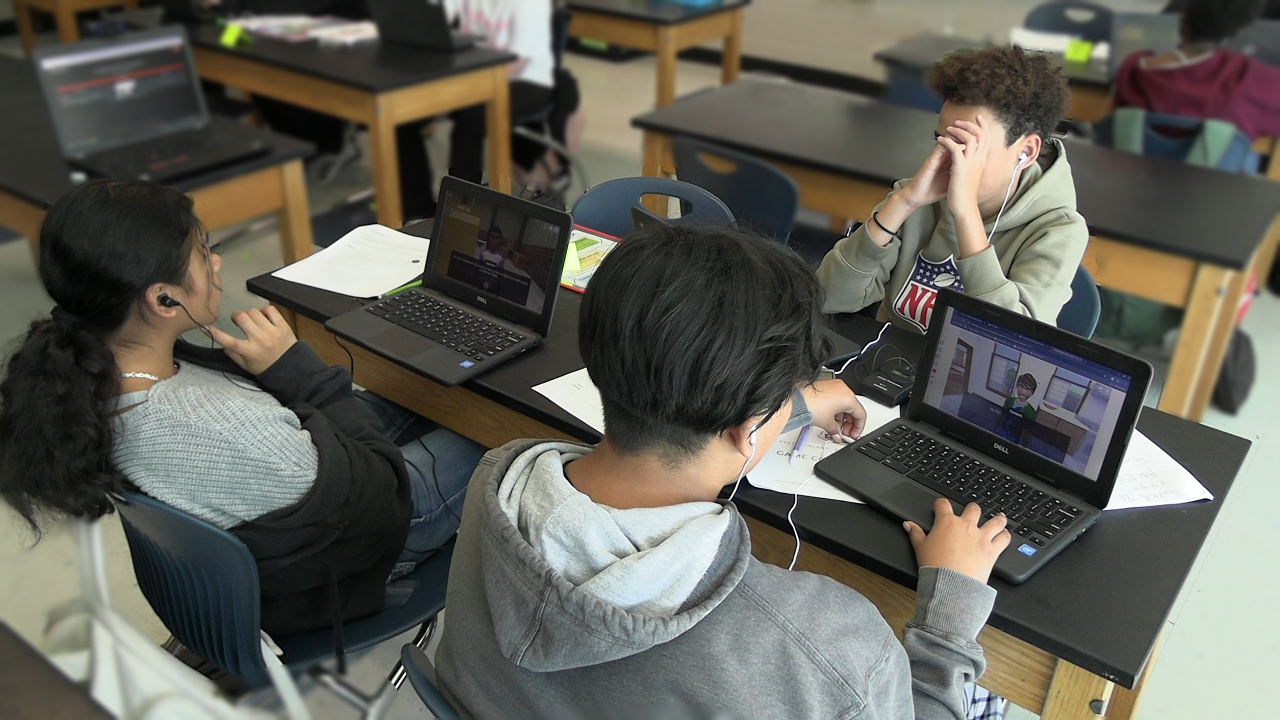Navigating Post-Pandemic Education: Addressing Challenges, Embracing Change and Advocating for Systematic Support
As educators, we face unprecedented demands in the post-pandemic era. The COVID-19 pandemic has intensified challenges, including social-emotional needs, learning gaps, digital equity, inclusivity and teacher support. Returning to in-person learning has not negated these issues; instead, it has added to the burdens on teachers. Recognizing that teachers cannot bear the burden alone, we must advocate for systematic support and collaborate with policymakers, administrators and community stakeholders to create a thriving educational ecosystem.
Prioritizing Social-Emotional Learning (SEL)
The pandemic has brought forth heightened social and emotional challenges for students. Isolation, fear and disrupted routines have impacted well-being. While targeted professional development equips educators with the skills to promote social-emotional learning, comprehensive support systems are necessary to create a nurturing environment that supports learning. Advocating for increased resources for mental health professionals, counselors and social workers can provide the specialized support needed to address these challenges effectively. Implementing trauma-informed practices and integrating social-emotional learning into the curriculum can help students navigate their current realities and foster their overall well-being.
Learning Gaps and Academic Recovery
The disruptions caused by the pandemic have brought to light and exacerbated existing learning gaps among students. It is important to acknowledge that these gaps existed prior to the pandemic but were further widened by prolonged school closures, remote learning challenges and limited access to resources. The extended periods of remote and hybrid learning, along with inconsistent access to technology and interrupted instruction, have significantly contributed to the learning gaps we now face. To effectively address these gaps, it is crucial to advocate for systemic support. We must allocate resources for intervention programs that provide targeted assistance to students who are struggling academically. Additional funding should be provided for specialized instruction and tutoring, ensuring that students receive the individualized support they need to bridge the learning gaps. Collaborative partnerships between schools and community organizations can also play a vital role in providing academic support and creating opportunities for students to catch up on missed learning.
Addressing Digital Equity
One critical issue that has been magnified by the pandemic is the digital divide among students. The sudden shift to remote learning exposed the disparities in access to reliable internet and appropriate technology. Students without these resources faced significant disadvantages, widening the achievement gap and perpetuating educational inequities. The limited device access, inadequate internet connectivity and lack of digital literacy skills have further marginalized students from underserved communities. As education increasingly integrates technology and digital resources, access to these tools becomes a prerequisite for meaningful participation and learning. Addressing digital equity requires a multifaceted approach. Advocacy efforts should focus on securing funding for infrastructure improvements, expanding broadband access in underserved areas and providing affordable technology resources to students. Prioritizing digital equity goes beyond hardware and connectivity. It necessitates promoting digital literacy skills among students, teachers and parents. By providing training and resources that enhance digital literacy, we empower individuals to navigate digital platforms effectively, utilize online learning resources and develop the critical thinking and digital citizenship skills necessary in today’s digital age. Finally, the importance of digital equity extends beyond immediate educational needs. In a rapidly advancing digital world, digital skills and fluency have become essential for future employment and civic engagement. Digital equity is deeply intertwined with broader societal issues of social justice and equity. The digital divide disproportionately affects marginalized communities, exacerbating existing inequalities. By addressing digital inequities, we take a step toward dismantling systemic barriers and creating a more equitable society.
Fostering Inclusive Practices
The pandemic has shed light on existing inequities and disparities in education. Remote learning revealed barriers faced by marginalized communities, including limited access to technology, language barriers and varying levels of support at home. The shift to online platforms highlighted the need for culturally responsive and inclusive instructional practices. Advocating for changes in curriculum development, instructional materials and assessment practices can promote diversity, equity and inclusion. Collaboration with administrators, policymakers and curriculum specialists is crucial to enact systemic changes that foster inclusive practices in all schools. By creating an inclusive and culturally responsive educational environment, we can ensure that every student feels valued, represented and supported.
Supporting Classroom Teachers
Returning to school has not resolved the issues uncovered during the pandemic; in fact, it has further exacerbated the burden on teachers. The unparalleled demands placed on classroom teachers persist as they navigate the complexities of the post-pandemic era. While the transition from remote and hybrid learning back to in-person settings was intended to restore normalcy, it has presented new challenges. Teachers had to adapt quickly to shifting instructional models, manage the emotional needs of students who may have experienced trauma during the pandemic and constantly navigate ever-changing guidelines and policies. The workload has increased significantly, as they strive to address learning gaps, implement catch-up plans and provide individualized support to students. To alleviate the pressures on teachers, it is crucial to advocate for reduced administrative burdens, manageable class sizes and adequate planning time. Recognizing the dedication of teachers also involves advocating for competitive compensation, career advancement opportunities and supportive work environments.
“By working collaboratively to tackle these issues, we can establish an educational landscape that not only supports students but also prioritizes the well-being of our dedicated teachers.”
The COVID-19 pandemic has brought forth extraordinary challenges for educators, prompting a reevaluation of teaching practices and the adoption of innovative approaches. However, it is crucial to acknowledge that the responsibility cannot solely rest on the shoulders of teachers. We must advocate for systematic changes at a broader level and ensure adequate funding for these initiatives. By working collaboratively to tackle these issues, we can establish an educational landscape that not only supports students but also prioritizes the well-being of our dedicated teachers. We must persist in navigating the post-pandemic terrain, addressing challenges, embracing change and advocating for systemic reforms to construct an inclusive, equitable and flourishing education system for all.
- Categories:


